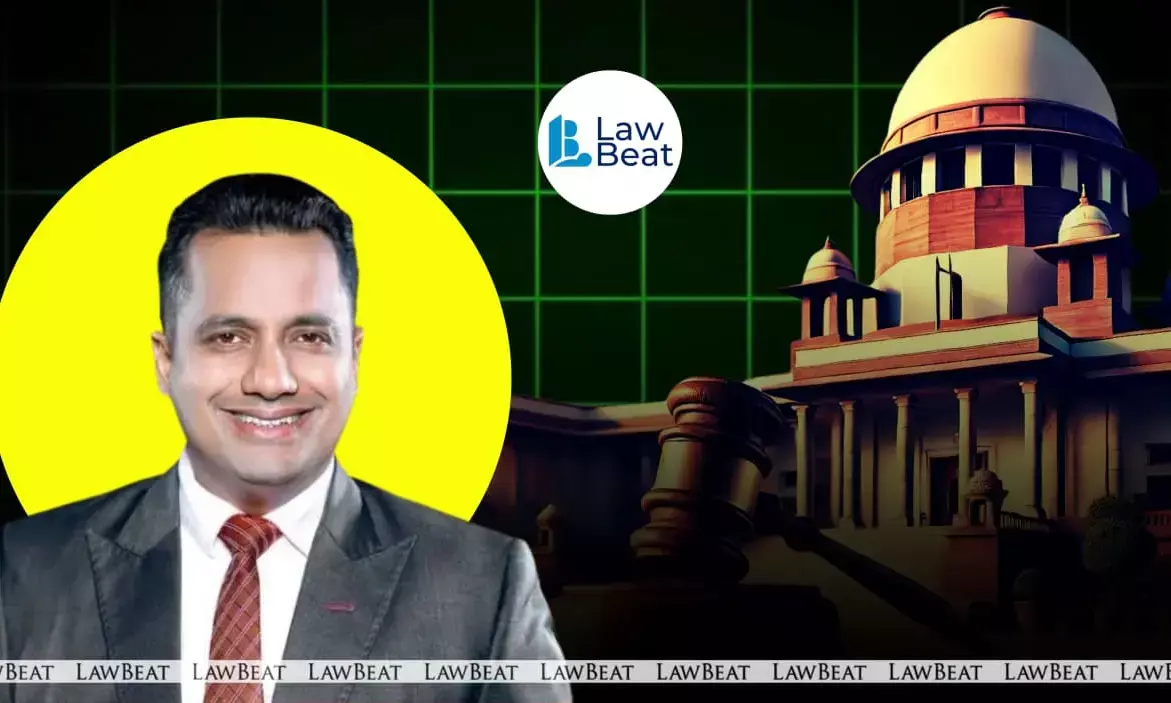SC Dismisses Plea Seeking CBI Probe Into Alleged Ponzi Scam by YouTuber Dr. Vivek Bindra

Motivational Speaker, Dr. Vivek Bindra
The Supreme Court has dismissed a writ petition filed under Article 32 of the Constitution seeking a Central Bureau of Investigation (CBI) probe into an alleged nationwide Ponzi scheme run by popular YouTuber and motivational speaker Dr. Vivek Bindra through his company, Bada Business Pvt Ltd.
The Bench of Justice MM Sundresh and Justice Satish Chandra Sharma heard the plea moved by multiple petitioners from across India, who claimed they had been duped of their hard-earned money in what they described as a “money chain-like scheme.”
During the hearing, Senior Advocate Siddhartha Dave and AoR Alabhya Dhamija, appeared for Dr. Bindra and opposed the petition.
The petitioners alleged that Bindra and his company lured thousands of youngsters by promising extraordinary business opportunities and guaranteed monthly incomes ranging between Rs. 15,000 to Rs. 1,00,000, failing which the full course fee would be refunded.
Despite complaints being filed in several states, the petitioners claimed that no effective action had been taken by local police authorities; no arrests had been made, no witnesses had been examined, and investigations remained stalled. They, therefore, sought a direction to the Union Ministry of Home Affairs to constitute a special CBI team to probe the matter, citing the pan-India nature of the alleged fraud.
According to the petition, the company allegedly ran aggressive advertisements on social media platforms, showcasing endorsements from well-known personalities who were misrepresented as “professors” in the programmes.
The petition states that Bindra also promoted a so-called “10-day MBA” programme, promising business training and assured refunds in case of failure to earn. However, the All India Council for Technical Education (AICTE), through a public advisory dated December 28, 2023, had already warned students to beware of “fake MBA crash courses” and clarified that such offerings were misleading and not recognised.
Petitioners allege that the real model was a disguised money circulation scheme. Participants were induced not only to pay hefty enrolment fees but also to rope in further recruits, earning commissions on fresh registrations; a classic Ponzi structure.
The plea compares the alleged fraud with the infamous Social Trade scam, orchestrated by Noida-based Anubhav Mittal, who in 2017 was accused of duping over six lakh investors in a Rs. 3,700-crore scheme. Just as Mittal promised returns for “likes” on social media, Bindra’s Bada Business allegedly created an illusion of skill-building opportunities while relying on endless enrolments for payouts.
The petitioners claim that despite filing written complaints before local police authorities across different states, no meaningful investigation has taken place. No arrests have been made, no witnesses examined, and no statements recorded. Multiple FIRs and complaints remain unattended, leaving victims without redress.
“It is a matter of national concern,” the petition argues, adding that since victims are scattered across several states, only a centralised investigation agency can ensure uniform, credible and effective action.
Placing reliance on the Constitution Bench ruling in State of West Bengal v. Committee for Protection of Democratic Rights (2010), the petitioners contend that the Supreme Court has jurisdiction to direct a CBI probe when issues have wide ramifications beyond the jurisdiction of a single state.
They argue that the allegations, on their face, disclose offences under Sections 420 (cheating), 406 (criminal breach of trust) read with Section 34 of the Indian Penal Code, and Sections 3 and 4 of the Prize Chits and Money Circulation Schemes (Banning) Act, 1978.
The petitioners have prayed for:
1. A writ of mandamus directing the Union of India and the Ministry of Home Affairs to constitute a CBI SIT to investigate the scam.
2. Registration of appropriate cases against Bindra and Bada Business Pvt Ltd.
3. Confiscation of assets and ill-gotten wealth amassed through the alleged scheme.
The plea underlines that the alleged scam has not only devastated the savings of individuals but has also raised questions about regulatory oversight of online business-training programmes that proliferate on digital platforms without accreditation.
